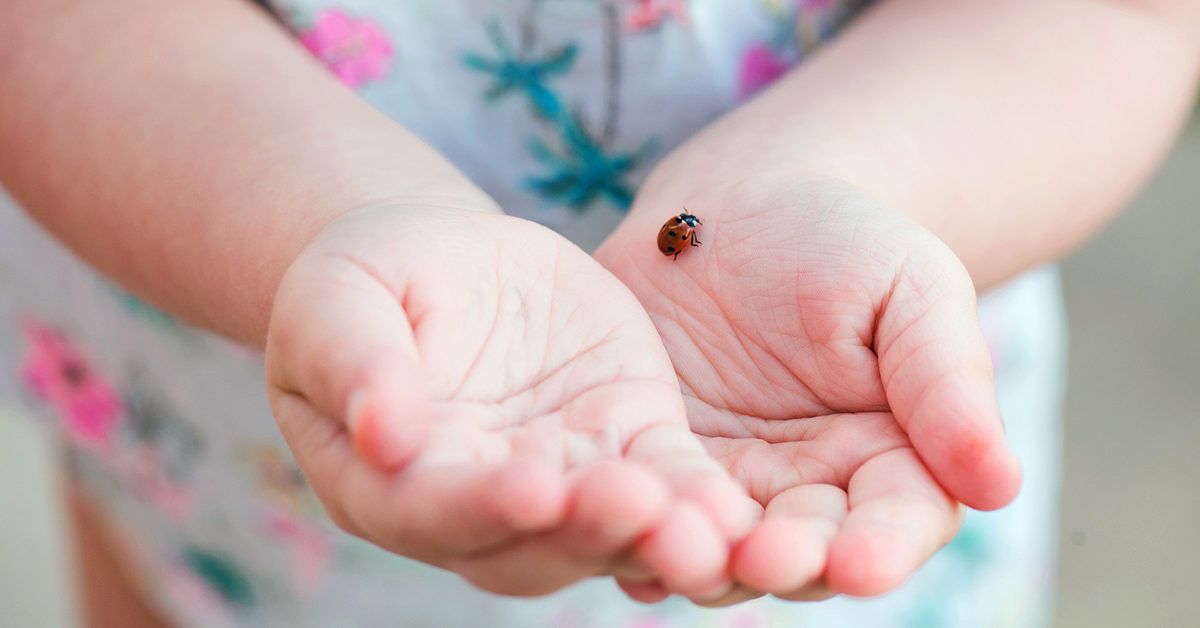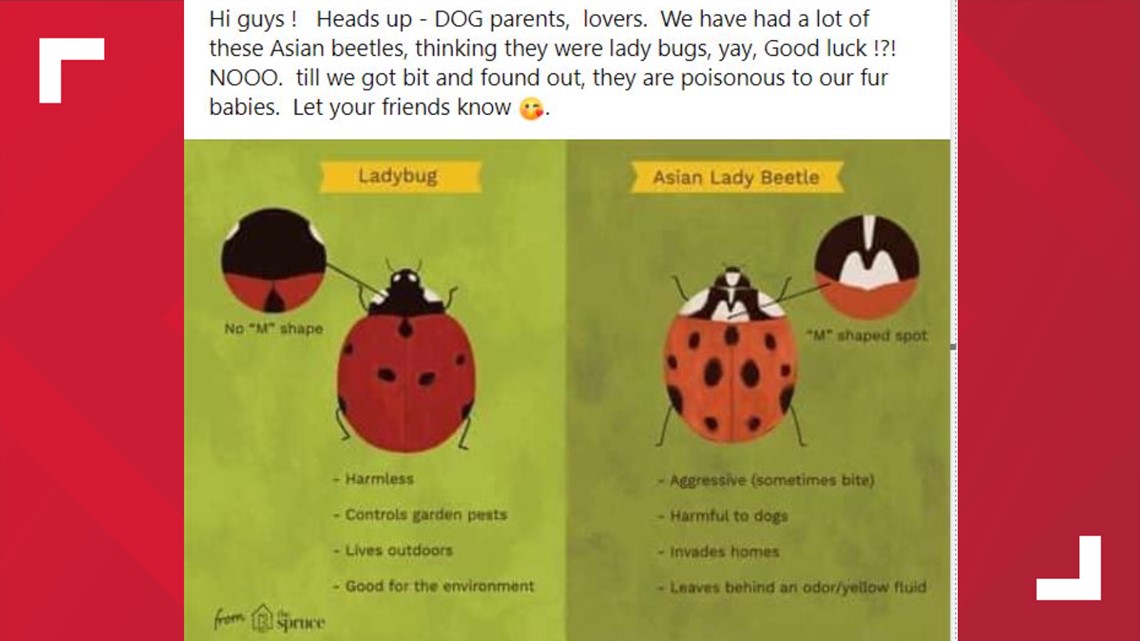No, cats can safely eat ladybugs in small quantities without any harm. Ladybugs are generally harmless to cats and won’t cause any health issues.
However, it is important to ensure that your cat doesn’t consume large quantities of ladybugs as it may lead to oral irritation, drooling, vomiting, and in severe cases, kidney failure. It’s rare for cats to consume a large number of ladybugs due to their taste being unpleasant.
So, while it’s generally safe for cats to eat ladybugs, it’s best to avoid exposing them to large infestations and monitor their behavior if they do consume any.

Credit: www.healthline.com
Can Cats Eat Ladybugs?
When it comes to our feline friends, we always want to ensure their safety and well-being. It can be concerning to discover that your cat has eaten something unexpected, like a ladybug. But before you panic, it’s important to know that ladybugs are generally harmless to cats.
Ladybugs Are Generally Harmless To Cats
Even if your cat happens to swallow one or two ladybugs, they’ll most likely be fine. Ladybugs are small, insect-eating bugs that are not poisonous to cats. They do not pose a significant threat to their health or well-being.
Ladybugs Are Not Poisonous To Cats
Contrary to popular belief, ladybugs are not poisonous to cats. The only time ladybugs can be considered poisonous is if they are consumed in large quantities. Ladybugs contain a chemical called cantharidin, which can be toxic when ingested in high amounts. However, it’s quite rare for cats to consume a large number of ladybugs, as most cats find their taste unappealing and may even be disgusted by it.
Ladybugs Can Be Harmful To Cats In Large Quantities
In rare cases where cats consume a large quantity of ladybugs, it can cause adverse effects. The cantharidin chemical found in ladybugs can lead to oral irritation, drooling, and vomiting. In severe cases, it can even result in kidney failure. However, it’s essential to understand that instances of cats consuming large quantities of ladybugs are infrequent and not a common occurrence.
If you suspect that your cat has ingested a significant number of ladybugs or is experiencing any unusual symptoms after eating them, it’s best to consult your veterinarian for proper guidance and advice.
Signs Of Ladybug Toxicity In Cats
If you’re worried about your cat eating ladybugs, don’t panic. Ladybugs are generally harmless to cats, and even if they swallow one or two, they’ll probably be fine. Ladybugs can only be harmful if consumed in large quantities due to a toxic chemical called cantharidin.
Ladybugs are not generally toxic to cats, but consuming them in large quantities can be harmful. Ladybugs contain a chemical called cantharidin, which is toxic to cats when ingested in high amounts. If your cat has eaten a significant number of ladybugs, you should be aware of the signs of ladybug toxicity.
Oral Irritation And Drooling
One of the first signs of ladybug toxicity in cats is oral irritation. If your cat has ingested a large number of ladybugs, it may experience irritation in its mouth, leading to excessive drooling. You may notice your cat constantly licking its lips, pawing at its mouth, or even attempting to vomit.
In some cases, the oral irritation can cause your cat to be hesitant about eating or drinking, as it may associate the discomfort with food or water. If you notice these signs, it is important to monitor your cat closely and seek veterinary attention if the symptoms worsen or persist.
Vomiting
Another common sign of ladybug toxicity in cats is vomiting. The cantharidin chemical present in ladybugs can irritate the stomach lining, leading to nausea and vomiting. Your cat may vomit immediately after consuming ladybugs or within a few hours of ingestion.
If your cat is vomiting repeatedly or experiencing other digestive issues such as diarrhea, it is essential to seek veterinary care. Vomiting can lead to dehydration and can indicate a more severe reaction to the ladybugs.
Kidney Failure In Severe Cases
In severe cases of ladybug toxicity, cats may experience kidney failure. The cantharidin chemical can have a toxic effect on the kidneys, leading to a decline in kidney function. This can be a life-threatening condition if not treated promptly.
Symptoms of kidney failure may include increased thirst and urination, decreased appetite, lethargy, weakness, and potentially even seizures. If you notice any of these symptoms in your cat after it has consumed ladybugs, it is crucial to seek immediate veterinary attention.
Remember, it is relatively rare for cats to consume large quantities of ladybugs. However, if you suspect that your cat has ingested a significant number of ladybugs or is exhibiting any of the signs of ladybug toxicity, it is always best to consult with your veterinarian for proper evaluation and guidance.
Preventing Cats From Eating Ladybugs
Cats are known for their curious nature and love for hunting. While ladybugs may seem harmless, it’s important to prevent cats from eating them, as consuming too many ladybugs can be harmful to your furry friend. In this section, we will explore some effective strategies to keep ladybugs out of your house and discourage cats from hunting them.
Keep Ladybugs Out Of The House
In order to prevent your cat from eating ladybugs, it’s crucial to keep these insects out of your house. Here are a few tips to consider:
- Seal any cracks or openings in windows, doors, and walls to prevent ladybugs from entering your home.
- Use screens on windows and doors to provide an additional barrier against ladybug intrusion.
- Ensure your outdoor spaces are well-maintained and free from ladybug attractants such as aphids or other small insects that ladybugs feed on.
- Remove any ladybug nests or infestations promptly, as they can serve as a breeding ground and attract more ladybugs.
Discourage Cats From Hunting Ladybugs
Cats are natural hunters, and their instinct to chase and catch small creatures like ladybugs is hard to resist. Here are a few suggestions to discourage cats from hunting ladybugs:
- Provide your cat with plenty of interactive toys and activities to keep them stimulated and entertained. This will help redirect their hunting instincts towards appropriate outlets.
- Create a designated play area for your cat, complete with scratching posts, climbing structures, and toys. This will give them an alternative focus and help satisfy their natural predatory instincts.
- Invest in puzzle feeders or treat-dispensing toys to keep your cat mentally engaged and less interested in hunting ladybugs. These toys provide mental stimulation and challenge your cat to work for their food.
- Consider using motion-activated deterrent devices, such as motion-activated sprinklers or ultrasonic devices, to deter ladybugs from your yard and prevent your cat from getting close to them.
Remember, it’s crucial to observe your cat’s behavior and provide appropriate supervision to ensure their safety and well-being. By taking preventive measures and providing alternative toys and activities, you can help keep your cat away from ladybugs and minimize the risk of them consuming these insects.

Credit: www.wusa9.com
:strip_icc()/cats-and-insects-555032_FINAL2-resized-d0e6b0cb61dd432697e745c2876b9a16.jpg)
Credit: www.thesprucepets.com
Frequently Asked Questions For Can Cats Eat Ladybugs
What Happens When A Cat Eats A Ladybug?
If a cat eats a ladybug, it’s generally harmless. Cats can swallow one or two without any issues. Ladybugs are not poisonous to cats.
Are Ladybugs Harmful To Animals?
Ladybugs are generally harmless to animals, including cats. Even if a cat swallows one or two, they will likely be fine. Ladybugs only become harmful if they are consumed in large quantities.
Are Ladybugs Poisonous If Eaten?
Ladybugs are generally harmless to cats. Even if your cat swallows one or two, they’ll probably be fine. Ladybugs are only poisonous if you eat them. However, if your cat is allergic to ladybugs, a skin welt may form. Ladybug fecal matter can also worsen allergies.
Can I Feed My Pet Ladybug?
Ladybugs are generally harmless to cats and can be fed to them without any issue. They are not poisonous and even if your cat swallows one or two, they will most likely be fine. However, consuming large quantities of ladybugs can be harmful to cats.
Conclusion
While it’s natural to worry when your cat eats something unexpected like a ladybug, there is generally no need for concern. Ladybugs are not poisonous to cats and are typically harmless if swallowed in small quantities. However, if your cat consumes a large number of ladybugs, it can cause oral irritation, drooling, and vomiting.
So, it’s best to discourage your cat from eating excessive amounts of ladybugs. Remember to always monitor your cat’s behavior and consult with a veterinarian if you have any concerns.

